The School of Mechanical Engineering hosted the Liyuan-GEC Science & Academic Studies Overseas Forum on May 14 and 15, with the aims to broaden students’ horizons, stimulate their innovative thinking, exercise their expression skills, promote the exchange of academic knowledge between teachers and students, help graduate students develop their academic aspirations and achieve outstanding academic results. More than 500 graduate students majoring in mechanical engineering and power engineering from 10 universities including Peking University, Tsinghua University, Beijing Institute of Technology, Harbin Institute of Technology, Shanghai Jiao Tong University, Southeast University, Zhejiang University, South China University of Technology, Xi'an Jiao Tong University, and Northwestern Polytechnical University attended this virtual forum.
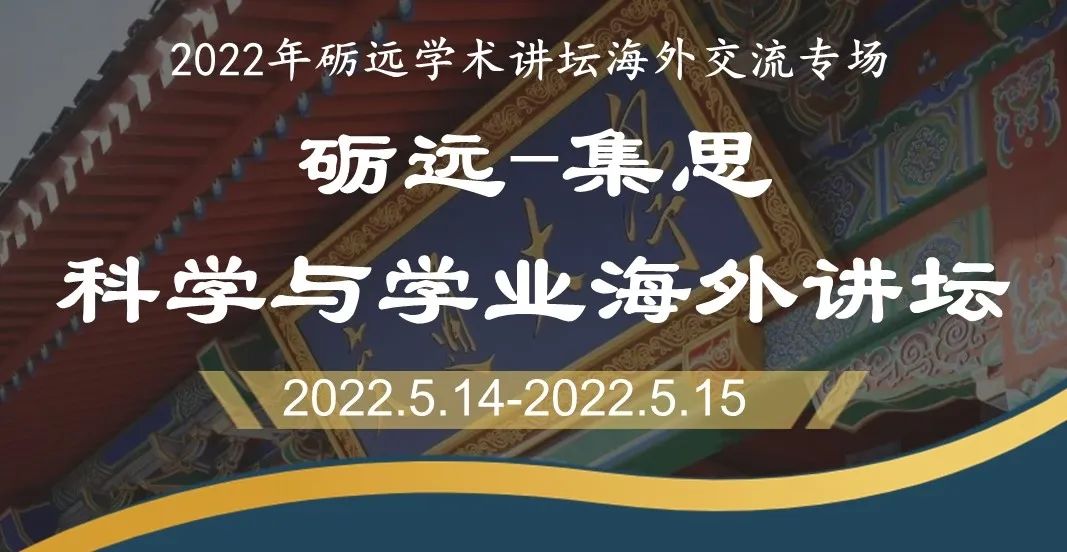 On the morning of May 14, a Forum Session on Power Engineering was held. Jason Ren, Professor of Civil and Environmental Engineering and the Andlinger Center for Energy and Environment, Associate Director for Research at the Andlinger Center for Energy and the Environment at Princeton University, introduced the frontier methods of carbon neutrality, that is, how to control carbon emissions from the source and achieve carbon neutrality, and proposed to achieve carbon neutrality as early as possible through policy formulation and academic research. Alessandro Gomez, Professor of Mechanical Engineering and Director of the Yale Center for Combustion Studies at Yale University focused on cutting-edge research in the fields of power engineering and engineering thermophysics and mainly introduced the application of advanced combustion and electrospray technology. Daniel Prober, Professor of Applied Physics and Director of Undergraduate Studies at Yale University, presented the composition and application of new energy technologies in the 21st century and discussed the technical means of realizing a zero-carbon city with students.
On the morning of May 14, a Forum Session on Power Engineering was held. Jason Ren, Professor of Civil and Environmental Engineering and the Andlinger Center for Energy and Environment, Associate Director for Research at the Andlinger Center for Energy and the Environment at Princeton University, introduced the frontier methods of carbon neutrality, that is, how to control carbon emissions from the source and achieve carbon neutrality, and proposed to achieve carbon neutrality as early as possible through policy formulation and academic research. Alessandro Gomez, Professor of Mechanical Engineering and Director of the Yale Center for Combustion Studies at Yale University focused on cutting-edge research in the fields of power engineering and engineering thermophysics and mainly introduced the application of advanced combustion and electrospray technology. Daniel Prober, Professor of Applied Physics and Director of Undergraduate Studies at Yale University, presented the composition and application of new energy technologies in the 21st century and discussed the technical means of realizing a zero-carbon city with students.
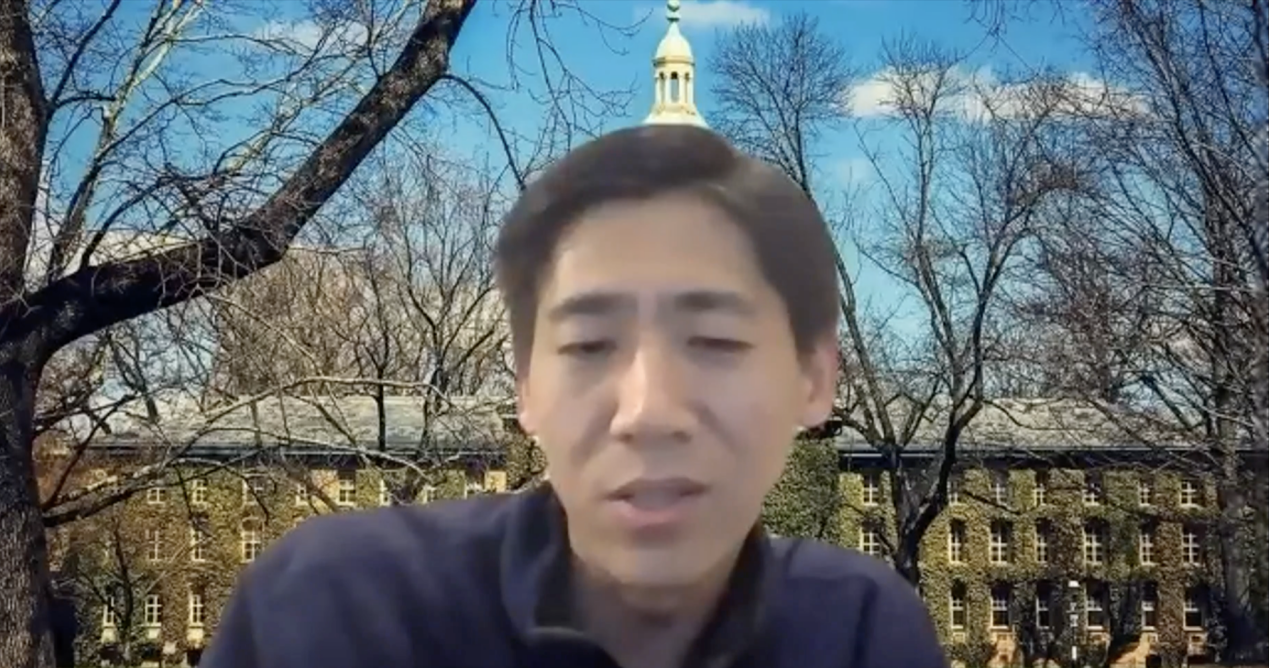
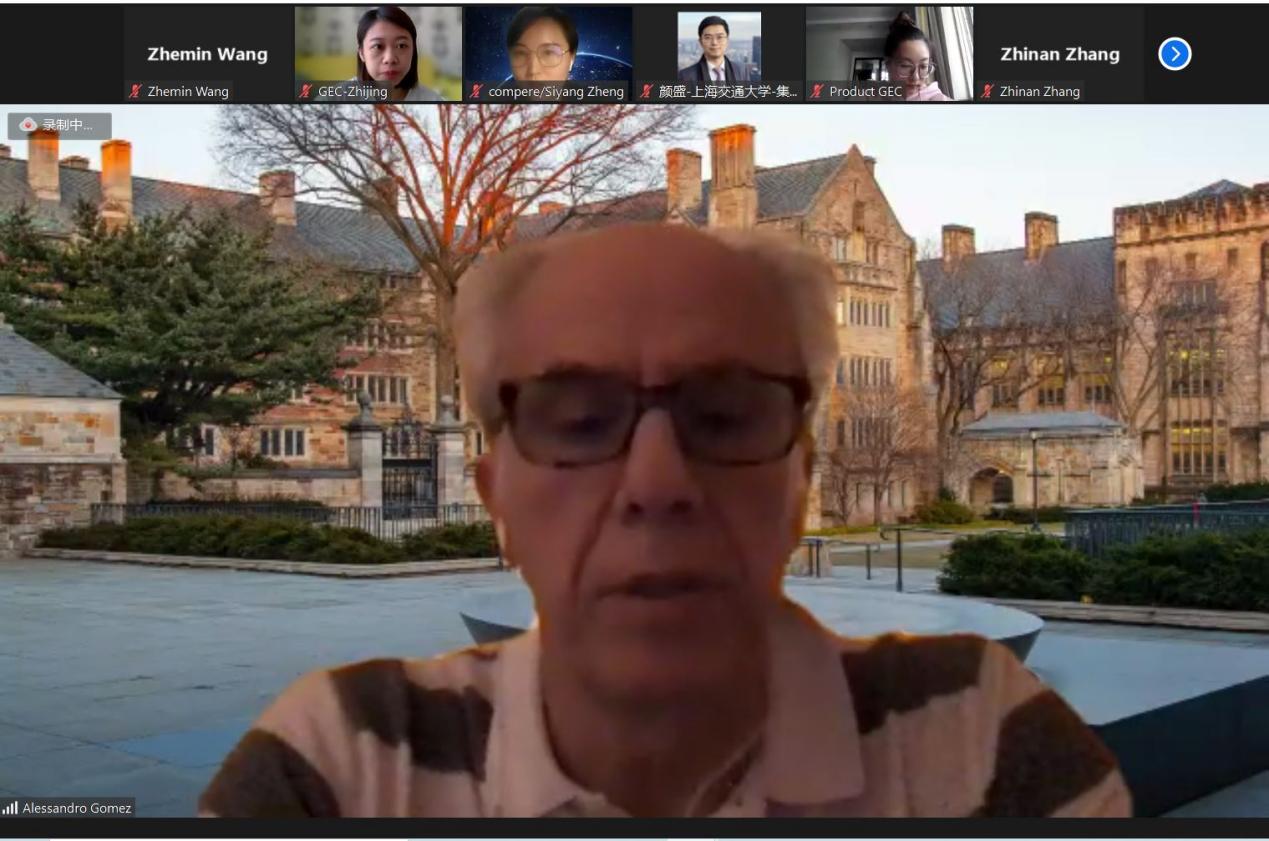
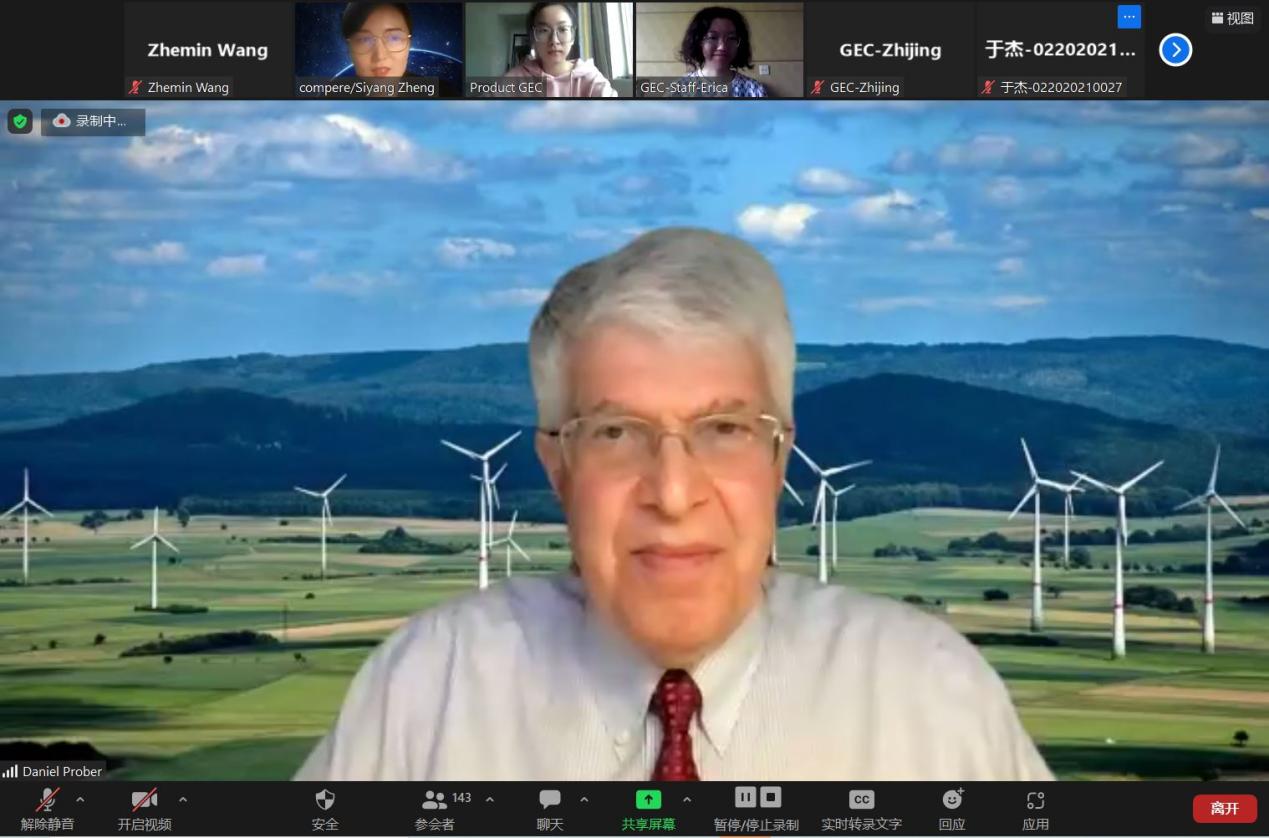 In the afternoon, five doctoral students in the fields of power engineering and nuclear science from School of Mechanical Engineering shared their scientific research results and overseas study experience. They introduced their research on the solar-driven gasification in an indirectly-radiated internally-circulating fluidized bed, the wide-range combustion reaction kinetics and molecular structure effects of typical long-chain olefin fuels, the near-zero magnetization metamaterials in the nonreciprocal thermal radiation technology, the verification technology of the vane gas-liquid separator morphology adaptive hybrid model, and the combustion characteristics of metal powder based on multi-dimensional optical diagnosis method.
In the afternoon, five doctoral students in the fields of power engineering and nuclear science from School of Mechanical Engineering shared their scientific research results and overseas study experience. They introduced their research on the solar-driven gasification in an indirectly-radiated internally-circulating fluidized bed, the wide-range combustion reaction kinetics and molecular structure effects of typical long-chain olefin fuels, the near-zero magnetization metamaterials in the nonreciprocal thermal radiation technology, the verification technology of the vane gas-liquid separator morphology adaptive hybrid model, and the combustion characteristics of metal powder based on multi-dimensional optical diagnosis method.
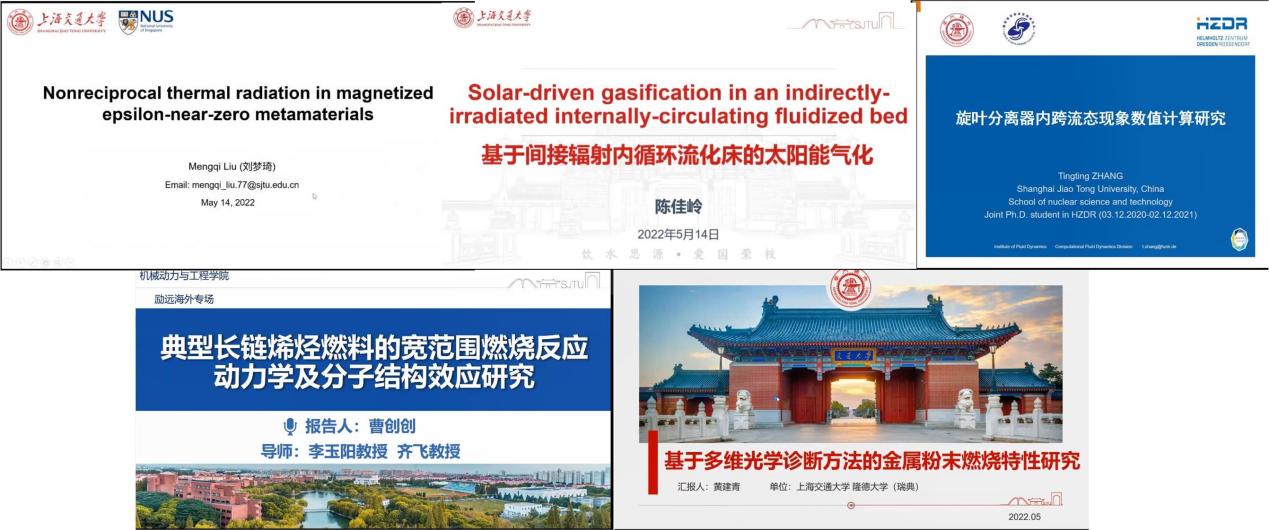 On the morning of May 15, doctoral students in mechanical engineering also presented their scientific research progress on the scaling for the inverse thickness dependence of specific penetration energy in polymer thin film impact test, the adaptive gripping and operation technology from automated to autonomous robots, the data-driven design of multi-scale heterogeneous metamaterial systems and its applications, the laser repairing technology for surface defects of fused silica optical components in high-power lasers and the accelerated stress factors based nonlinear degradation model for lithium-ion battery prognostics.
On the morning of May 15, doctoral students in mechanical engineering also presented their scientific research progress on the scaling for the inverse thickness dependence of specific penetration energy in polymer thin film impact test, the adaptive gripping and operation technology from automated to autonomous robots, the data-driven design of multi-scale heterogeneous metamaterial systems and its applications, the laser repairing technology for surface defects of fused silica optical components in high-power lasers and the accelerated stress factors based nonlinear degradation model for lithium-ion battery prognostics.
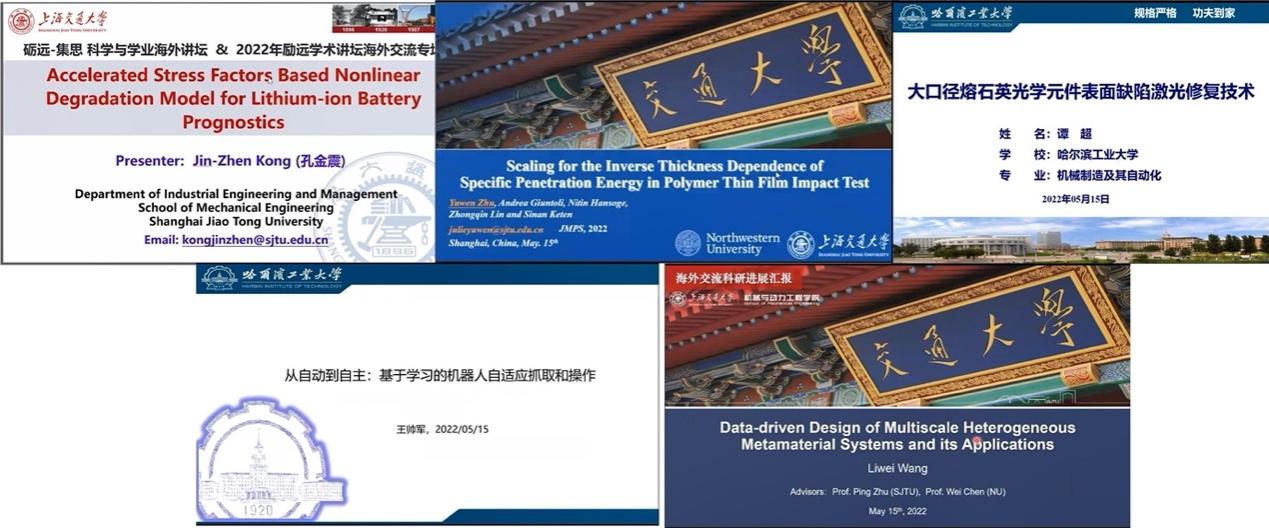 In the afternoon, Jaime Marian, Vice Chair of Graduate Education and Professor of Mechanical and Aerospace Engineering, Materials Science and Engineering at the University of California, Los Angeles, introduced the multi-scale computational modeling method of material evolution under extreme conditions based on the exploration of mechanical engineering and material simulation technology. Dejan Marković, Professor of Electrical and Computer Engineering at the University of California, Los Angeles, spoke about the research on VLSI and chip design in the digital age and communicated with the students on the frontiers of mechatronics and advanced manufacturing technology. Colm Durkan, Deputy Head of Department of Engineering and Professor of Electrical Engineering at the University of Cambridge, listed the application of nanotechnology in the field of electric vehicles and conducted multi-level research on the trend of new energy technologies for vehicles.
In the afternoon, Jaime Marian, Vice Chair of Graduate Education and Professor of Mechanical and Aerospace Engineering, Materials Science and Engineering at the University of California, Los Angeles, introduced the multi-scale computational modeling method of material evolution under extreme conditions based on the exploration of mechanical engineering and material simulation technology. Dejan Marković, Professor of Electrical and Computer Engineering at the University of California, Los Angeles, spoke about the research on VLSI and chip design in the digital age and communicated with the students on the frontiers of mechatronics and advanced manufacturing technology. Colm Durkan, Deputy Head of Department of Engineering and Professor of Electrical Engineering at the University of Cambridge, listed the application of nanotechnology in the field of electric vehicles and conducted multi-level research on the trend of new energy technologies for vehicles.
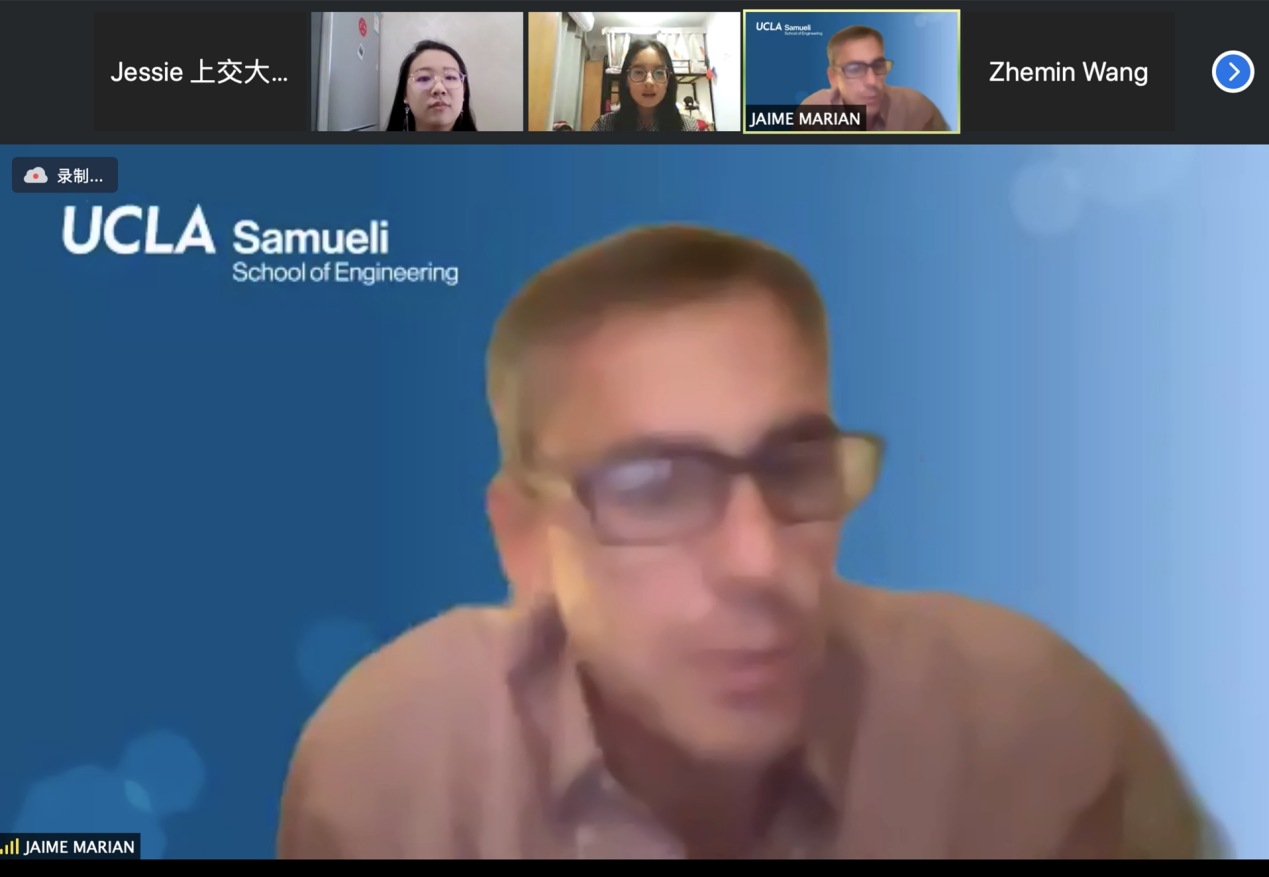
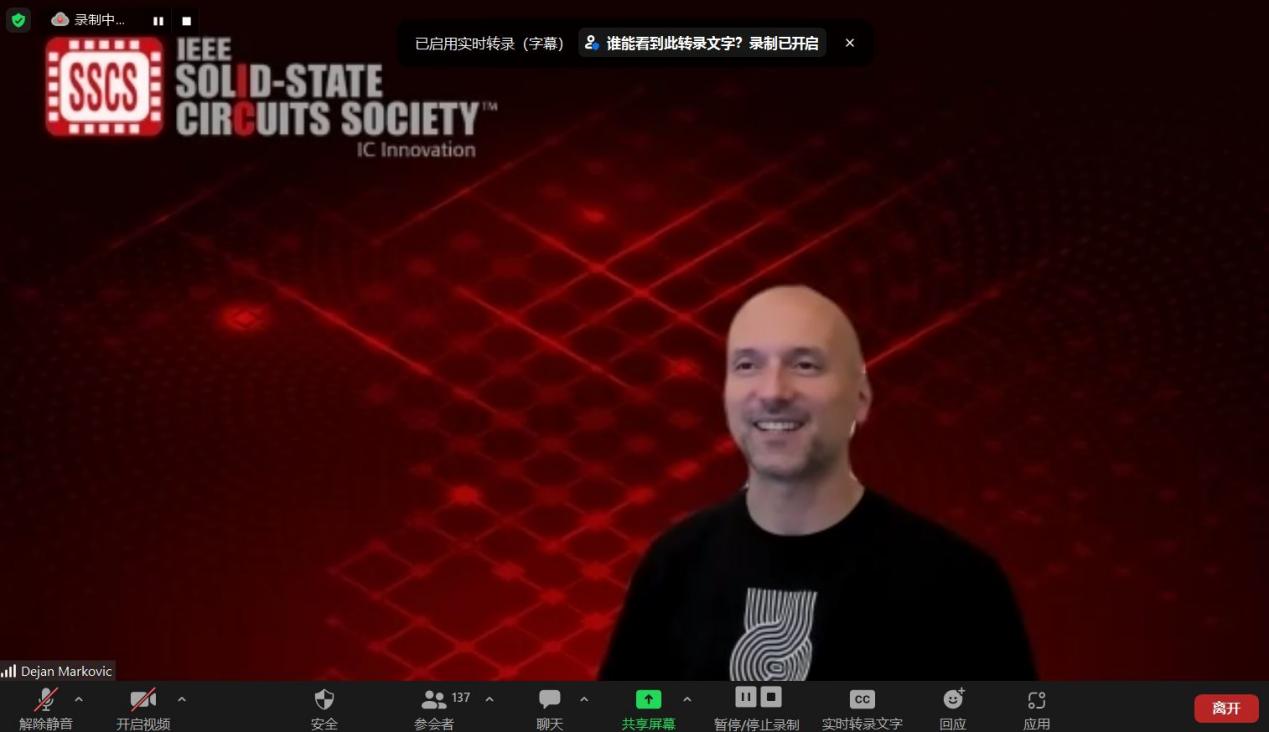
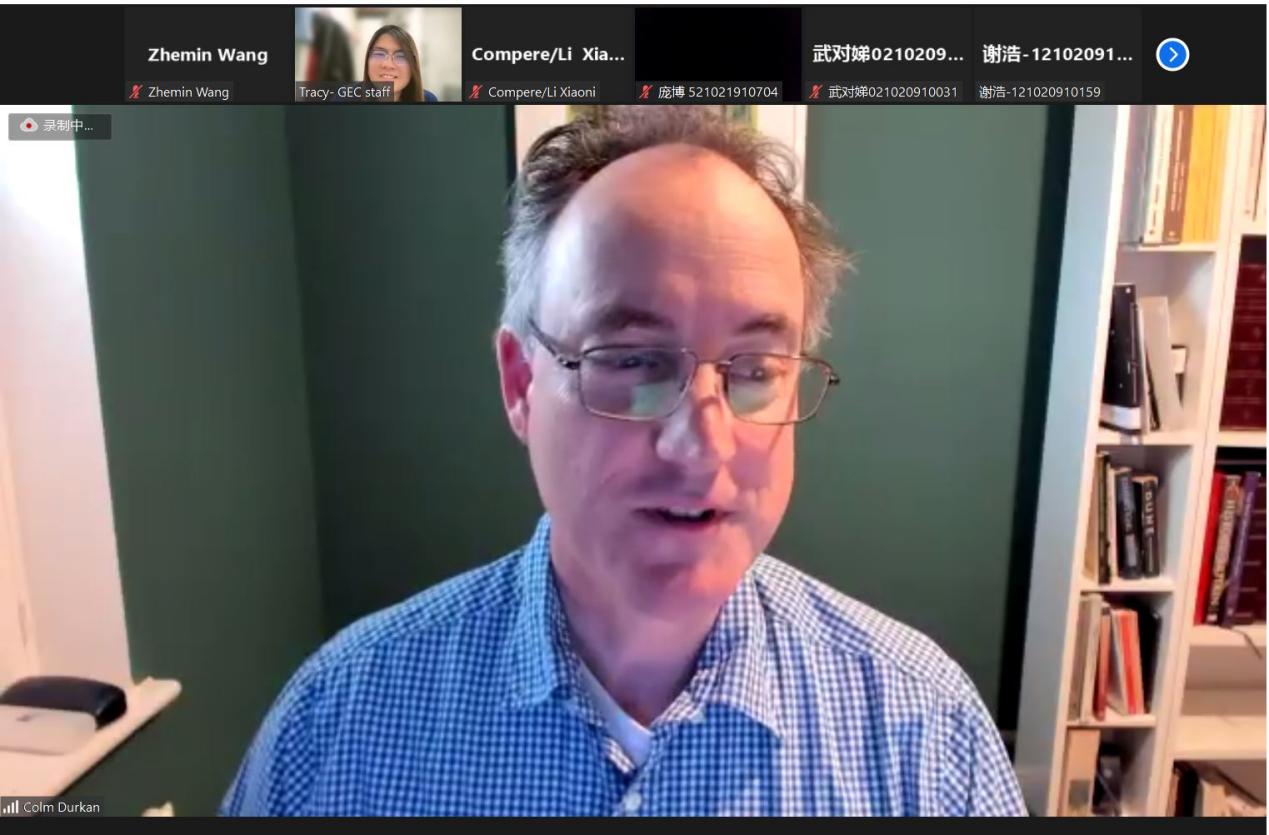 At the end of the forum, Professor Zhang Zhinan, Vice Chairperson of the School Council, and Director of SJTU-GEC Interdisciplinary Innovation Design Joint Research Center made a concluding speech, expressing his gratitude to all participants and encouraging students to learn with an open mind and actively engage in academic activities on and off campus.
At the end of the forum, Professor Zhang Zhinan, Vice Chairperson of the School Council, and Director of SJTU-GEC Interdisciplinary Innovation Design Joint Research Center made a concluding speech, expressing his gratitude to all participants and encouraging students to learn with an open mind and actively engage in academic activities on and off campus.
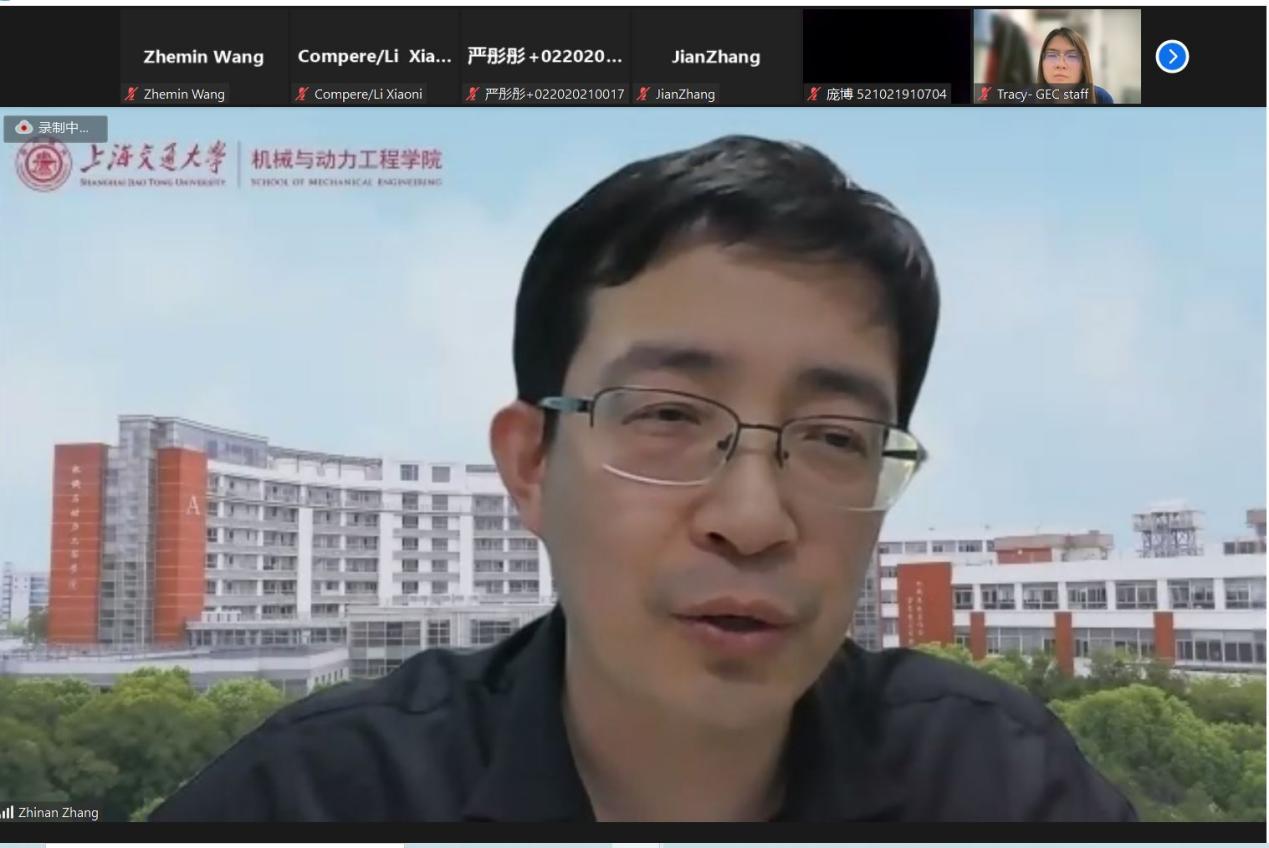 Co-hosted by the Liyuan Academic Organization Committee and SJTU-GEC Interdisciplinary Innovation Design Joint Research Center, the forum brought together scholars and experts from top universities around the world and mobilized students who returned from overseas exchanges. The Committee was named "Liyuan", which is of great significance, meaning that we will forge ahead with the inspiration of "Never forget the source of water” with a long-term goal to break the boundaries in academia. The Center aims to jointly build a decentralized sharing and exchange platform, promote the academic exchanges and cooperation in interdisciplinary fields among domestic and foreign universities, and cultivate interdisciplinary innovative talents by using the high-level academic resources of SJTU combined with GEC Academy’s resources and training experience in international innovation and research-oriented talent training at home and abroad. In the future, the Center will hold a series of similar events to facilitate students' academic development.
Co-hosted by the Liyuan Academic Organization Committee and SJTU-GEC Interdisciplinary Innovation Design Joint Research Center, the forum brought together scholars and experts from top universities around the world and mobilized students who returned from overseas exchanges. The Committee was named "Liyuan", which is of great significance, meaning that we will forge ahead with the inspiration of "Never forget the source of water” with a long-term goal to break the boundaries in academia. The Center aims to jointly build a decentralized sharing and exchange platform, promote the academic exchanges and cooperation in interdisciplinary fields among domestic and foreign universities, and cultivate interdisciplinary innovative talents by using the high-level academic resources of SJTU combined with GEC Academy’s resources and training experience in international innovation and research-oriented talent training at home and abroad. In the future, the Center will hold a series of similar events to facilitate students' academic development.

